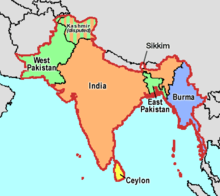Since the Partition of British India in 1947, India and Pakistan have been embroiled in a series of wars, conflicts, and military standoffs. The ongoing dispute over Kashmir, cross-border terrorism, and historical tensions have been the primary sources of conflict between the two nations. From the First Kashmir War in 1947 to the Kargil War in 1999, these conflicts have had far-reaching consequences for both countries.
The Indo-Pakistani War of 1947-1948, also known as the First Kashmir War, was triggered by Pakistan’s fears that the princely state of Jammu and Kashmir would accede to India. The war resulted in the division of Kashmir, with India gaining control of the majority of the state. Subsequent conflicts, including the Indo-Pakistani War of 1971 and the Kargil War of 1999, have further strained relations between the two nations.
The Kargil War, in particular, saw Pakistani troops infiltrate Indian territory in the Kargil district, leading to a major military conflict. International pressure forced Pakistan to withdraw its forces, resulting in a significant military defeat for the Pakistani Army. Despite these conflicts, both countries continue to engage in border skirmishes and military posturing, with the specter of nuclear conflict looming in the background.
The Indo-Pakistani conflicts have shaped the history and politics of South Asia, leading to the observance of national and armed forces-specific days to commemorate the sacrifices made during these wars. While the wars have been a source of inspiration for filmmakers in both countries, the human cost of these conflicts remains a sobering reminder of the need for peace and diplomacy in the region.
Attribution:
This article was summarized and republished from the original source.
Please check the original article here: https://en.wikipedia.org/wiki/Indo-Pakistani_wars_and_conflicts.
